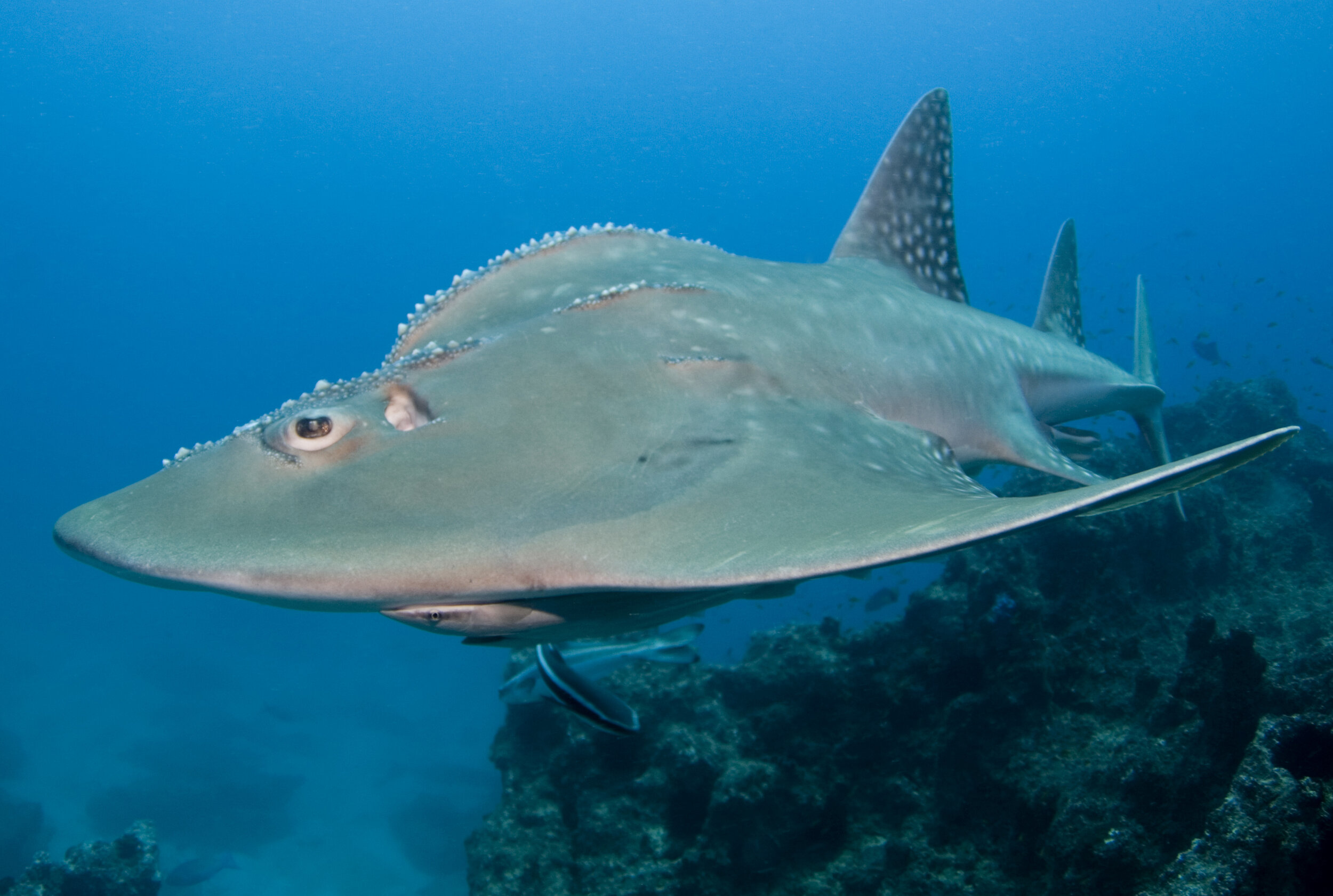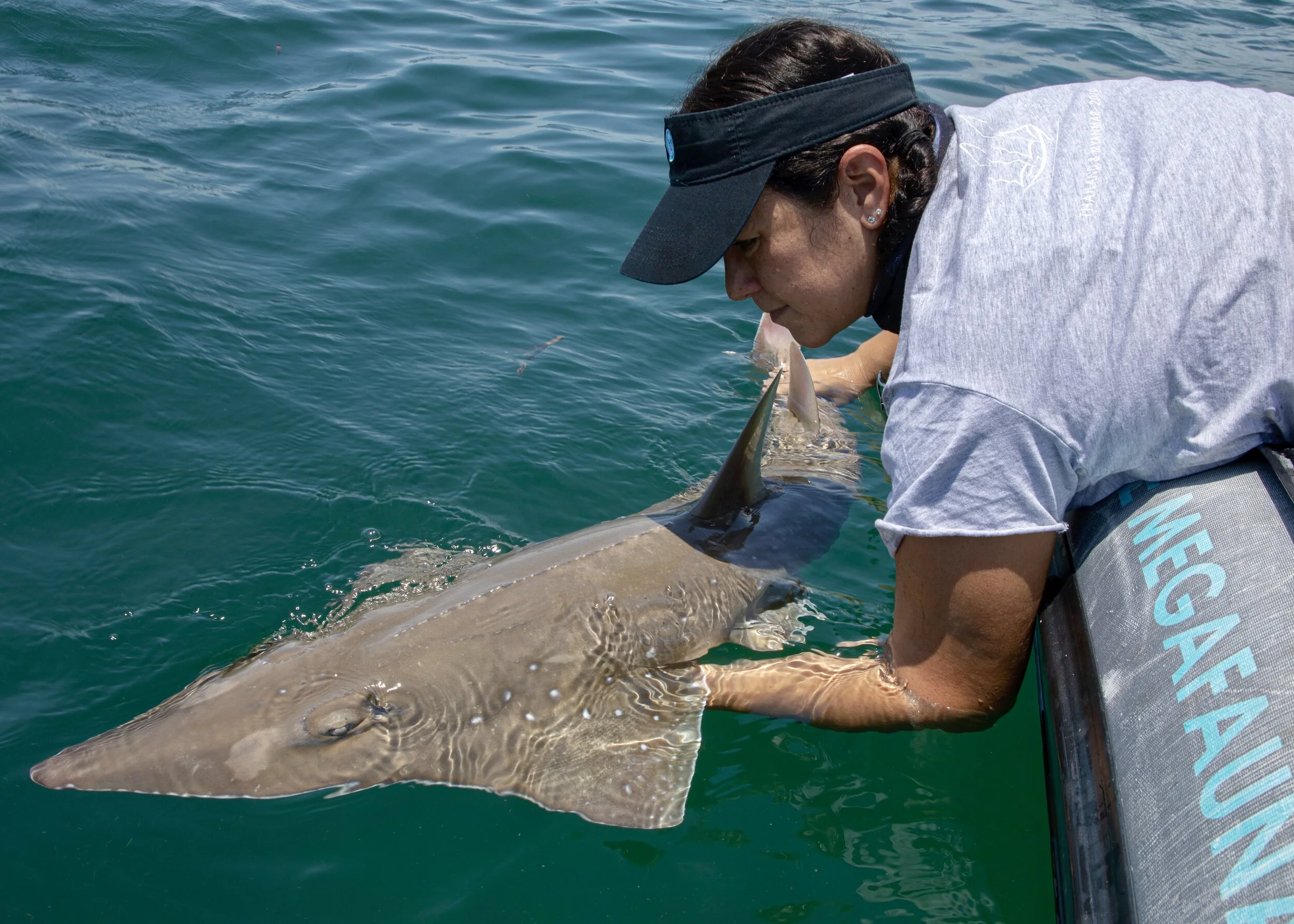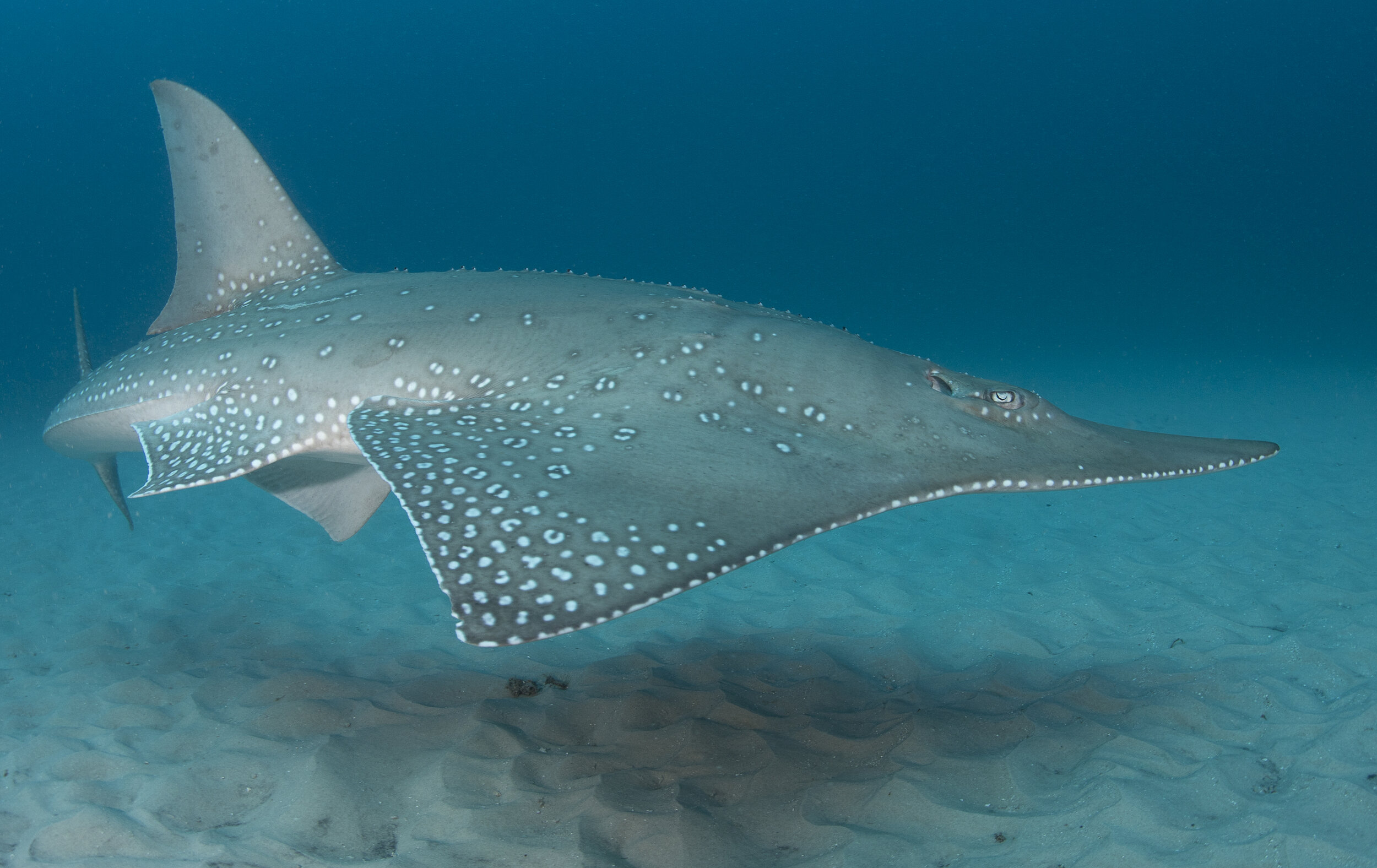
Mozambique Projects.
Rhino Rays
What’s this project about?
Rhino rays – the sharkrays, guitarfishes, and wedgefishes – were recently identified as the world’s most threatened group of marine fishes. They have been extensively targeted by fisheries, leading to dramatic population declines. Mozambique is a center of abundance for these spectacular rays.
Our research is focused on gathering the data required for a science-based conservation strategy to be created for these critically endangered rays in Mozambique.
Key successes to date
MMF has compiled a 15-year rhino ray sightings dataset in the Inhambane Province, including presence/absence records, photographic IDs, and behavioral data.
Through explorative diving and the use of remote cameras, we have identified a number of wedgefish aggregation sites from the Bazaruto Seascape to Zavora, including potential nursery areas.
We have collected tissue biopsies from individuals to build up a sample library for genetics studies, focusing on taxonomy and population connectivity.
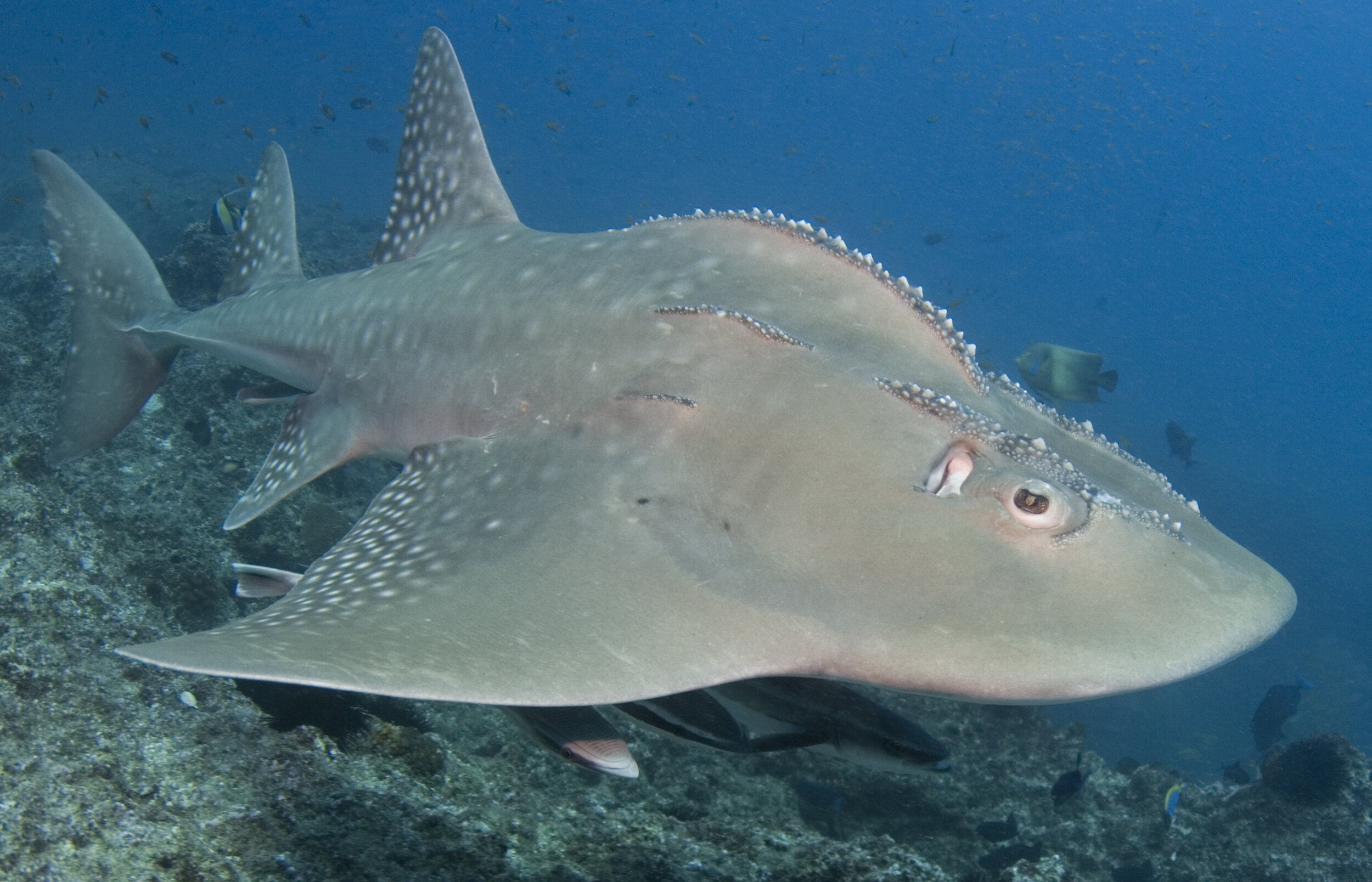
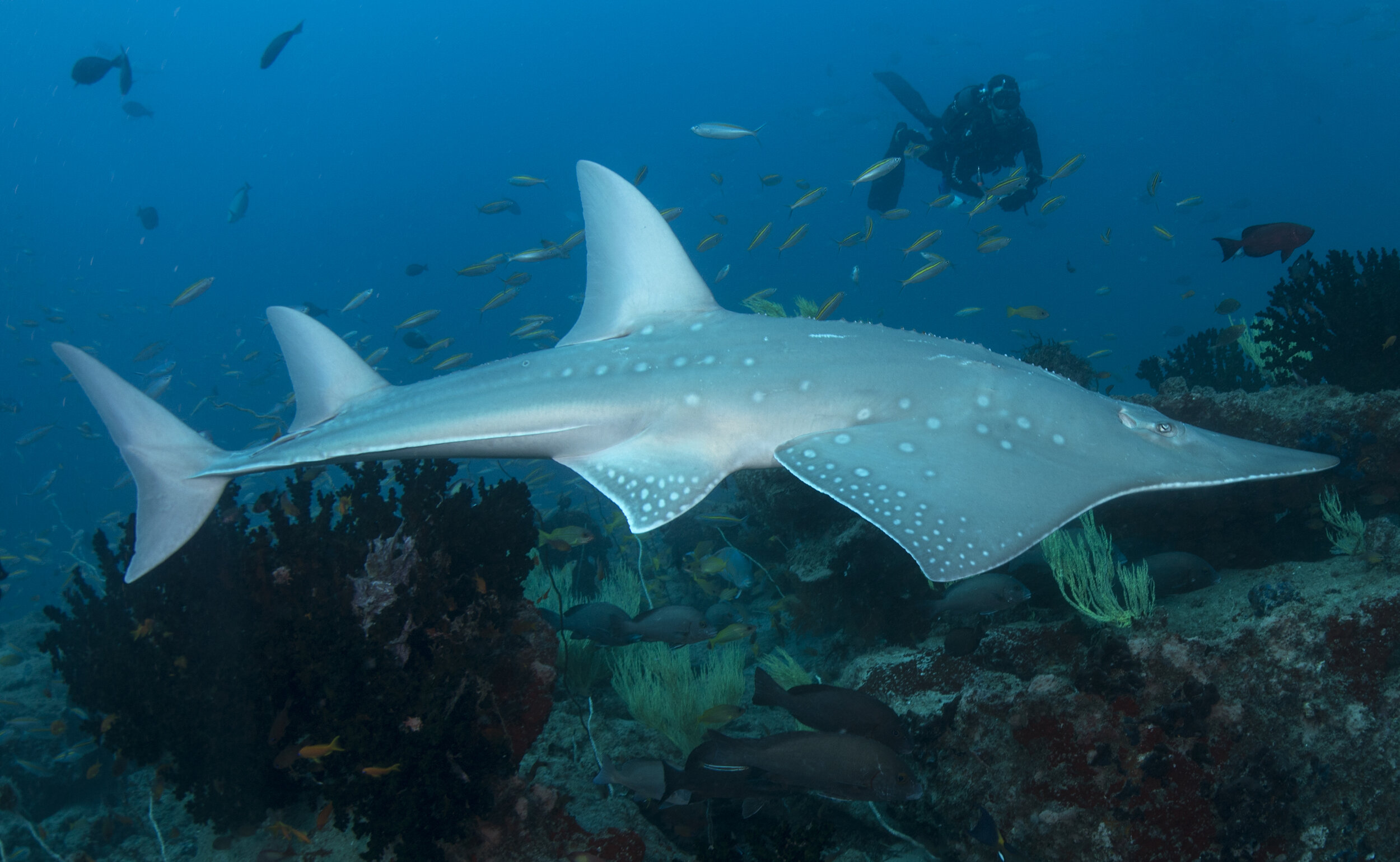
Project Overview.
Rhino rays, which include the guitarfish and wedgefishes, were recently identified as the world’s most threatened marine fishes, with populations experiencing severe declines on a global scale. Low reproductive rates hinder population recovery and exacerbate their extinction risk, whilst the high value of their fins and meat drives excessive, unregulated fishing throughout their range. To make matters worse, a paucity of focused research or general scientific knowledge – even on which species is which – hinders the development of effective conservation strategies for these animals.
Conservation Needs for Rhino Rays
The listing of 15 rhino ray species as Critically Endangered by the IUCN in 2019 sparked a global call for the rapid initiation of research to better understand this lesser-studied group, and specifically to inform effective conservation strategies that can prevent further decline. Biological and ecological knowledge of these rays is currently lacking and, as a consequence, few management plans exist to protect declining populations worldwide.
Rhino Rays in Mozambique
The Inhambane Province is an important habitat for rhino rays in south-east Africa. At least three species of identified wedgefish, including the bowmouth guitarfish (Rhina ancylostoma), the bottlenose wedgefish (Rhynchobatus australiae), and the white-spotted wedgefish (R. djiddensis), as well as one species of guitarfish (grey-spotted guitarfish, Acroteriobatus leucospilus) inhabit coastal waters. Fishing pressure in the form of gillnetting, longlining, and targeted capture has increased substantially in the past decade, presenting a major threat to these already vulnerable species. To date, there has been little direct research conducted on this group in southern Mozambique, or elsewhere in Southern Africa. Consequently, their distribution, habitat preference, movements, and baseline numbers remain unknown.
MMF Research on Rhino Rays
MMF’s rhino ray program has been designed to rapidly collect high-priority information on guitarfish and wedgefish in southern Mozambique and to develop a science-based conservation strategy for them in a region fraught with anthropogenic threats.
Objectives.
Broadly, we aim to gather the data necessary to develop and inform science-based conservation management plans for guitarfish and wedgefish in southern Mozambique. To achieve this, we are employing a range of techniques including visual and photographic monitoring at aggregation sites, satellite and acoustic tracking, and the collection of tissue samples and morphometric data for taxonomic studies.
Project Leaders
Dr Andrea Marshall
Principal Scientist
Andrea has been conducting research on marine megafauna in Mozambique for 20 years, with an emphasis on sharks and rays. As a conservation biologist she focuses predominantly on research questions related to the effective management and conservation of threatened species.
Dr Stephanie Venables
Senior Scientist
Stephanie has been working with MMF since 2014. Her research involves applying different research techniques as conservation tools, using methods such as telemetry (tagging), population genetics, and demographic modeling to better understand species and the way they interact with their environment.
Collaborators
Dr Ryan Daly - Oceanographic Research Institute (ORI), South Africa Link
Further Reading
